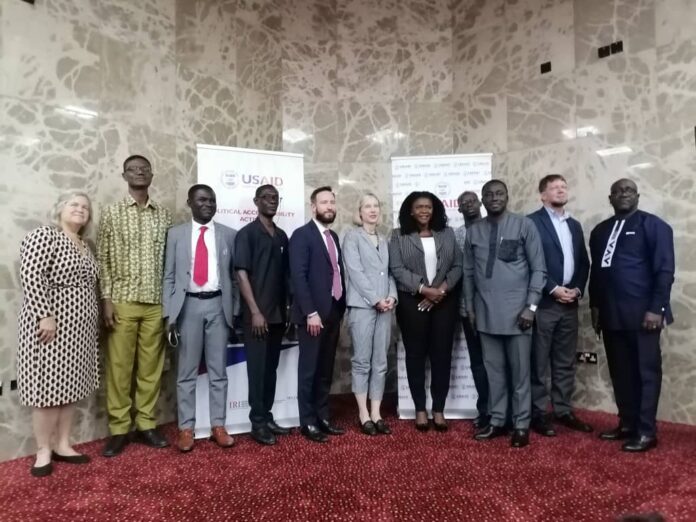The United States Government through the U.S. Agency for International Development (USAID) has launched a four-year project to support government accountability in Ghana.
The $6.4 million project will build capacity among civil society and grassroots organizations to ensure all Ghanaians, including women, youth, and other underrepresented groups, may actively engage in local democratic processes.
The project includes support for elections and better responsiveness of political actors at the local level.
USAID Mission Director Kimberly Rosen joined the International Republican Institute (IRI) Vice President, Scott Mastic, Ghanaian officials, project partners, civil society leaders and government officials to launch the activity.
“The U.S. Government recognizes the importance of accountable governance. We know that accountable governance affects people’s quality of life. These include improving quality service delivery in health, basic education, agriculture, and fisheries,” said Rosen at the launch of the project.
The Consortium for Elections and Political Process Strengthening (CEPPS), which includes the International Republican Institute (IRI), the National Democratic Institute (NDI) and the International Federation for Electoral Systems (IFES) are implementing the ‘USAID Political Accountability Activity’.
The project will also address issues of electoral reforms, deepen political decentralization, promote inclusive governance, and support the development of peaceful norms as important factors to strengthen accountability in Ghana’s political system.
The project will include collaboration with independent agencies of government and civil society to strengthen campaign finance rules and prevent electoral violence.
These efforts will aim to assist political parties and the Electoral Commission to monitor compliance with electoral laws as well as promote peaceful and tolerant political norms.
The National Commission for Civic Education (NCCE), the Electoral Commission and the National Peace Council all pledged their support for the smooth running of the exercise.


